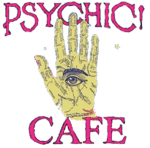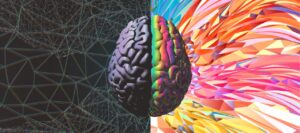Thais Gibson

Trauma can be challenging, but the moment we are willing to do work on it is the moment that so much potential for healing and growth opens up. The more aware we are of the bigger picture, the less we suffer.
As a general rule, the mind clings to negative, fear-based experiences as a biological survival mechanism. But when we can consciously step outside of our own stories, outdated beliefs, and personal perspective, we can empower personal transformation through self-awareness.
Below are some useful questions to ask yourself in different instances of trauma. They are designed to help clear your mind, open your heart, and begin the healing process.
1. Life Is About Evolution. Find The Lesson In Your Experience
The Big Bang has revealed a universe to us that is radically evolutionary. It is constantly growing, evolving, and developing, and has been for more than 14 billion years. Life is evolution. It is an ongoing process of transformation and conscious expansion. This is a natural law, and this means that from a higher perspective, all of the experiences in our lives are happening for us, not “to” us.
While things may create suffering on an egoic level, there is often a different layer of meaning from a higher perspective. You must be willing to look for the hidden order in your perceived chaos. Ask yourself:
What am I supposed to learn?
How did I play a part in the creation of this, and what habits or behaviours do I need to clear?
How can I grow from this?
These questions will take you out of a state of learned helplessness and begin shifting your mind to focus on the solution rather than the problem.
Bottom of Form
I recently worked with a client whose house burnt down. She was overcome with grief. While discussing the situation, she mentioned to me that it was also days within the ten-year anniversary of her husband’s death.
I asked her if she felt that the two situations were somehow connected. Right away, she mentioned that she had still kept all of her husband’s belongings in that house and their bedroom exactly the same, more than ten years later.
She also mentioned how consistently her family begged her to move on. One family member specifically said to her, “If you don’t let go and choose to move on, the universe will eventually force you to.” She felt that this was a lesson in moving forward in her life, and in letting go. She also knew that by holding on so tightly to the past, she was preventing new love and peace of mind from entering her life.
She knew it was time to let go, and as challenging as it would be, it couldn’t be more painful than spending every day trying to pretend that nothing had changed.
Finding the lesson is an important first step to opening our minds to the evolutionary process, and finding a higher meaning in the sequence of events occurring in our lives.
“The wound is the place where the light enters.” – Rumi
2. See The Other Side
Beyond simply learning from our experiences, we can also find the hidden benefits in all of the circumstances we are faced with.
Our beliefs and expectations will often create one-sided stories in our mind about whether events are good or bad. This often causes us to focus primarily on the drawbacks of unmet expectations. And yet the exact events that challenge us most in life often have the greatest unseen blessings embedded within them.
Ask yourself, “What are the unseen benefits of this traumatic experience?”
Based on the natural laws of duality that exist on our planet, this technique I’ve learned from Dr. Nima Rahmany in The Overview Method is very effective. It works to un-filter your selective perception so that you can see both sides in a traumatic situation.
Where are you being supported in the face of this challenge? How is this trauma actually supporting the things you care about most in your life?
If you are courageous enough, you will be willing to go directly into the challenges you face, open up your perspective, and do the work. The more benefits you find, the closer you will get to neutralizing the feeling of loss within yourself.
3. Look Beyond Your Perspective
There is a difference between pain and suffering. Pain is a feedback loop, while suffering is the story we create about the pain itself. It adds another layer to our pain
If someone else has hurt you, ask yourself: “Why, according to this person’s life story and perception of events, did this person feel justified in making their decision?”
Every single one of us makes a decision because the combination of our conscious + subconscious mind believes there are more benefits than drawbacks in that decision.
This means that everyone is always doing the best they can with what they understand at the time. And more often than not, the people who do the most careless or destructive things are often the ones hurting the most.
The same principle applies to you also, meaning that the notion of having regret is illusory. It is based on only being able to see the conscious mind’s perspective, putting us in a state of limited awareness. If we could open up the selective filter and see the bigger picture, we would find that the subconscious mind saw greater benefits in our decision at the time, that we weren’t consciously aware of.
In the words of Yehuda Berg, “Hurt people, hurt people.” With awareness and understanding, we can work to break the cycle.
4. Find What’s Missing
In the case of a traumatic loss, developed by Dr. John DeMartini:
All positive and negative particles in the universe are created simultaneously, in perfect one-to-one balance. We are made of these particles, and if these laws apply to all matter (in both quantum mechanics and classical physics), they must apply to the whole.
This perfect one-to-one balance exists within all things, but our senses create imbalanced perceptions. It is completely normal to become attached to the form of what we’ve lost, but it can be very healing to find where what we’re missing still exists in our lives.
Ask yourself, “What do I miss about who/what I’ve lost?”
For example, let’s say that you’ve lost a friend and you miss:
- His sense of humour
- Having deep conversations with him
- Playing video games
- His awesome hugs
Keep listing until you’ve covered all of the things you miss about that person.
Now, see where these things still appear in your life, but in different forms:
- Who do you laugh with now/who has a good sense of humour?
- Who do you have deep conversations with now?
Go through all of the traits that you’ve listed. Sometimes, you’ll have to look very carefully to open up your selective perception. The things you miss in your friend might not only come in the form of other people. For example, you might laugh with your aunt or siblings more often, but you might also find yourself watching more comedy television or funny videos.
If you look carefully, you will find that what you’re missing isn’t actually gone, it has only changed forms. Universal laws state that everything is always in a state of balance, a state of wholeness. While grieving is a necessary part of dealing with trauma, it is often the form we are attached to that creates the most suffering.
Then, what are the benefits of these new forms, that the old one didn’t have?
Some of these questions can be challenging to go through, but if you truly want to create transformation, they are well worth it.
Love yourself enough to do the work, ask the questions, and set yourself free. You deserve it.





